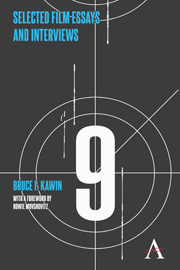Book contents
11 - The Elephant Man
from PART III - REVIEWS
Published online by Cambridge University Press: 05 May 2013
Summary
Film Quarterly published this review in 1981. The term “mindscreen, ” used in this piece and in several other articles in this volume, comes from my book Mindscreen and refers to the audiovisual field of the mind's eye, which might present a dream, an inner tale, a memory, a fantasy, a lie, and so on.
Not since Shakespeare called for “a muse of fire” in Henry V and Olivier provided the light of an arc-rod projector has there been such an interesting opportunity to examine the relations between film and theater as David Lynch's The Elephant Man. Since the film was not based on Bernard Pomerance's play of the same name, but draws on many of the same historical materials and case studies, it cannot properly be examined as an adaptation; instead, the specific decisions made by Pomerance and Lynch on how best to tell their respective stories of John Merrick reveal something about the basic terms and strategies of theater and film, and those distinctions in turn provide a clue to what The Elephant Man, as a film, is trying to accomplish.
Merrick was a hideously deformed young Englishman who was discovered in a sideshow by the anatomist Dr. Frederick Treves, who arranged for him to live in London Hospital until his death a few years later.
- Type
- Chapter
- Information
- Selected Film Essays and Interviews , pp. 72 - 78Publisher: Anthem PressPrint publication year: 2013



